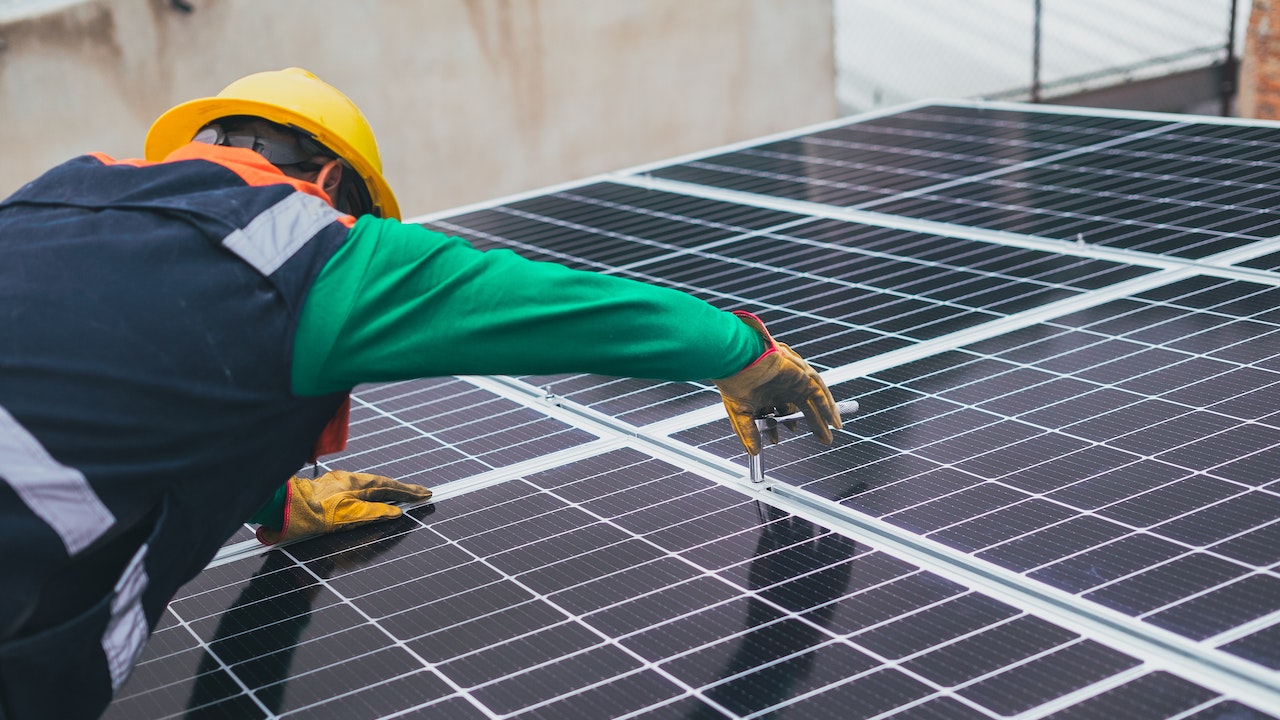Saving the Planet, One Step at a Time: A Guide to Environmental Sustainability
Being environmentally friendly is important for preserving the planet for future generations. Simple changes in daily habits can make a positive impact on the environment. The 7 ways to help the earth are: reduce waste by recycling, composting and reducing single-use plastic; conserve water by fixing leaks, taking shorter showers, and using drought-resistant plants; switch to energy-efficient appliances, lights and electronics; support renewable energy sources like solar, wind, and hydro power; support sustainable agriculture practices; use public transportation, carpool, or bike instead of driving alone; and properly maintain vehicles to reduce emissions. By making these small changes, we can each play a role in saving the planet, one step at a time.

As the world becomes increasingly aware of human activities impact on the environment, more and more people are looking for ways to help preserve our planet. Environmental sustainability can seem daunting, but it doesn't have to be. Small changes in our daily habits can make a big difference in the long run. In this blog post, we will go over some simple ways to be environmentally friendly.
Reduce, Reuse, Recycle

The mantra "Reduce, Reuse, Recycle" is a simple way to remember the steps to take in order to reduce waste and minimize your impact on the environment. Start by reducing the number of items you purchase, especially single-use plastics like straws, water bottles, and grocery bags. When you do need to buy something, opt for products that can be reused, like reusable water bottles and cloth grocery bags. You can also bring your own containers to the grocery store to reduce packaging waste.
It's also important to recycle everything you can, from paper and cardboard to aluminum cans and plastic containers. Many cities have curbside recycling programs that make it easy to recycle, and there are often recycling facilities where you can drop off items that can't be picked up at the curb. If you're not sure what can be recycled, check your local recycling guidelines or use online resources to learn more.
Use Energy Efficient Appliances and Light Bulbs

Switching to energy-efficient appliances and light bulbs can help reduce your energy consumption and lower your carbon footprint. Energy Star-certified appliances use less energy, which means you'll save money on your energy bills and reduce your impact on the environment. Additionally, LED light bulbs use 75% less energy than traditional incandescent bulbs, last longer, and are more cost-effective in the long run.
When shopping for appliances, look for Energy Star-certified products and consider buying used or refurbished appliances instead of new ones. You can also take steps to reduce your energy usage by unplugging appliances and electronics when they're not in use, using power strips to reduce standby power, and setting your computer to sleep mode when you're not using it.
Conserve Water

Water is a precious resource and conserving it is an important part of being environmentally friendly. Simple steps like turning off the tap while brushing your teeth, fixing leaky faucets, and taking shorter showers can help reduce your water consumption. You can also install water-saving devices like low-flow showerheads and toilets to reduce water waste even further.
In addition to reducing your personal water usage, you can also conserve water by using drought-resistant plants in your landscaping, collecting rainwater for watering plants, and fixing any leaks or broken pipes promptly.
Plant Trees and Support Reforestation Efforts

Trees are natural carbon sinks, meaning they absorb carbon dioxide from the atmosphere and release oxygen. Planting trees and supporting reforestation efforts can help reduce greenhouse gas emissions and improve air quality. You can plant trees in your own yard, support local tree-planting organizations, or contribute to global reforestation efforts through organizations like Trees for the Future or The Nature Conservancy.
In addition to planting trees, you can also support reforestation efforts by purchasing products made from sustainable, responsibly-sourced wood and paper products, and supporting companies that use sustainable forestry practices.
Support Renewable Energy

Fossil fuels like coal, oil, and natural gas release harmful greenhouse gases into the atmosphere when burned, contributing to global warming and climate change. Supporting renewable energy options like solar, wind, and hydropower can help reduce our reliance on fossil fuels and lower our carbon footprint. There are many ways to support renewable energy, including:
- Installing solar panels on your home or business
- Investing in a renewable energy fund or stock
- Supporting political initiatives that promote renewable energy
- Purchasing energy from a renewable energy provider
- Supporting companies that use renewable energy in their operations
By supporting renewable energy, you can help reduce greenhouse gas emissions and play a role in the transition to a cleaner, more sustainable energy system.
Support Sustainable Agriculture

Conventional agriculture practices can have negative impacts on the environment, including soil erosion, pesticide and fertilizer pollution, and loss of biodiversity. Supporting sustainable agriculture practices, like regenerative agriculture and agroforestry, can help improve soil health, reduce pesticide use, and conserve biodiversity.
You can support sustainable agriculture by purchasing food from local farmers' markets, seeking out products grown using sustainable practices, and supporting companies that use sustainable agriculture practices in their supply chain.
Use Public Transportation, Carpool, or Bike

Transportation is a significant contributor to greenhouse gas emissions, and reducing your reliance on single-occupancy vehicles can have a big impact on the environment. Using public transportation, carpooling, or biking instead of driving alone can reduce emissions, save you money on fuel costs, and improve air quality.
If you have to drive, consider buying a fuel-efficient or electric vehicle, and make sure to properly maintain your vehicle to improve fuel efficiency and reduce emissions.
Being environmentally friendly doesn't have to be complicated or time-consuming. By making small changes in our daily habits and supporting sustainable practices, we can each play a role in preserving our planet for future generations. Try incorporating some of these tips into your daily life, and see how you can make a positive impact on the environment.
ALSO READ
Global Impact of Gender Window: Advancing Equality with Social Protection Solutions
ISRO's Proba-3 Mission: A Leap in Solar Exploration
Challenges and Opportunities for Indian IT Sector: Navigating FY25 Headwinds
Proba-3 Mission: Unveiling Solar Mysteries with Precision Spacecraft Maneuvers
Bundesliga Broadcasting Bonanza: A €4.5 Billion Windfall for German Clubs










